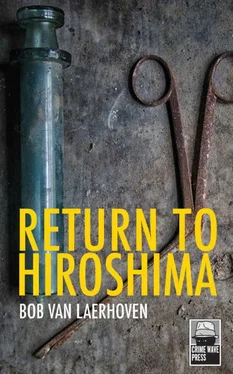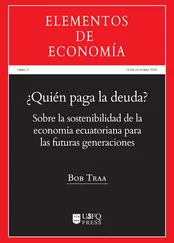The young giant continued on his way, with difficulty and determination, into the ruined city.
* * *
A woman staggered past the burning buildings with a baby in her arms. The heat had caused the baby’s skin to peel. He was limp and motionless in her arms.
A man tugged at the body of a teenager buried under the rubble. The boy’s skull was cracked open and brain tissue was hanging out of the wound. He had lost his right eye. He was calling out for his mother, his voice clear and steady. The man had pulled away enough rubble to see that both legs had been crushed. He tried to lift the boy. He succeeded. He continued on his way, the boy motionless in his arms.
A girl, blood gushing from her mouth, stumbled through the ruins of a school. Hands shot up from the rubble, bloody and smouldering. They tried to grab the girl by the ankles. Voices begged: “Take me with you, take me with you!” In panic she kicked at the hands and ran on, her arms outstretched as if she was blind.
Hundreds of people tried to reach the river Aioi. They screamed for help, lost direction in the ash-filled clouds of smoke, fell exhausted to the ground before they could reach the banks of the river and baked like clay stones in the raging fire.
Those who made it to the river couldn’t believe their eyes. A young man, his upper torso badly burned, was standing on the banks; a giant with an enormous, crooked head, waving with his left arm. In his right hand he held a katana. He held the sword into the air like an antenna. He shouted words the refugees didn’t understand: he was the crown prince of Japan, and he was going to lead them to the only surviving bridge across the river. They shook their heads: for some the atom bomb had brought mutilation, for others insanity. They refused to listen to the lanky scarecrow, forced their way past him to the river, jumped into the water to cool their burnt bodies, tried to swim to the other side with the little energy they had left.
The lunatic dropped his sword when he saw a whirlpool form in the river, a greedy centrifuge of water, as if some primal creature had awakened from its sleep at the bottom of the river, gulping down the bodies one by one as they shrieked and flailed with their arms and legs, or submitted in silence, resigned, exhausted.
Norikazu turned away from the river of death and stared at the mushroom above the city. It was still swelling outwards and upwards, illuminating the sky with a blinding radiance, reflecting every colour of the rainbow. It was overwhelming yet attractive, the gate to a new world.
Hiroshima – Saijo Station – Takeda and Becht – March 16 th1995
Beate Becht turns in a circle in the middle of Saijo Station, her camera at the ready. Bright colours swirl. The station building is a cacophony of sound and light. Voices, announcements, music, arriving trains. The youngsters around her are like a swarm of bees, constantly moving. They make her dizzy.
She decided to snap some shots while Takeda was asking around after Yori. As always, the lens narrowed her world and drew her to details. A pout, a dirty look under an orange Mohawk, a tattoo of a stiletto, high-heel pumps under a baggy skirt. She looked around when she was done, but Takeda was nowhere to be seen.
“Stay on the move,” Takeda had said that morning when they left the hotel where they had spent the night. “Norikazu knows it’s risky to spend too much time in the outside world. We have to get as far away from him as possible.” Beate was confused and angry at the heavy-set inspector who pretended nothing was going on. She was even angrier at herself. She didn’t understand why she had been so determined the night before. She had tried to seduce him. She had gracefully offered her boyish back and let her fringe fall over her eyes.
And what did Mr Policeman do? He completely ignored her and fell fast asleep. Later in the night she heard him dreaming, muttering and growling, angry and sad, snorting like a bull. Beate Becht lay sleepless at his side, her body heavy and limp, like a lump of clay.
In the morning he behaved as if nothing had happened. She followed his example.
Beate sits on a bench on the platform.
She’s convinced Takeda left the station when he saw she wasn’t paying attention to him.
She has a feeling he planned all this after their morning conversation on one of the okonomiyaki diners in the centre of town.
* * *
“Yummy.”
“ Okonomiyaki is the Japanese pizza.”
He sat opposite her, motionless, not hostile. For Beate, his broad face with the deep furrows either side of his robust nose was impossible to read. He took a bite of his okonomiyaki , its base covered with meat, seafood, vegetables and buckwheat noodles fried on a flat grill. He seemed to be waiting for something.
A hint might help: “I didn’t sleep a wink last night.”
He looked at her with his deep, dark eyes. She stared back at him. Was that regret? Hidden sadness? She hoped it was, but she wasn’t sure. She regretted her own insensitivity. His wife had only been dead for a day and she had tried to seduce him. She figured it would be better to start the conversation with something else.
“I spent the entire night picking over this crazy situation.”
Takeda made a dismissive gesture.
“I still can’t believe that our mafia boss is a rejected crown prince.”
He returned his okonomiyaki to his plate and wiped his fingers with his napkin. He ate like a farmer. She loved that.
“I’m pretty sure the birth certificate Yori gave us isn’t a fake.”
“ It might be authentic, but can we be sure it’s his? If everything Yori told us is true, the prince was in poor shape when he was born. Would the physician have dared act against the will of the emperor?”
“I’m not sure it was against the emperor’s will. Maybe he persuaded the emperor that this was the right thing to do. Children change people.”
“But…”
“You don’t know how we think or feel. You’re not Japanese.”
She tried to keep it light. “You’re not the full pizza yourself.”
His eyes narrowed. He picked up his okonomiyaki and took a serious bite. He seemed to be thinking.
“Whatever: even if Norikazu isn’t the crown prince, he still has a lot of power, at least in this prefecture. He had no qualms about killing Adachi, a police doctor, and liquidating Nagai Shiga, an economist known throughout the country, in a pretty spectacular way. Have you seen what the papers are saying about Nagai Shiga’s death? They’ve found a new scapegoat.”
Beate shakes her head.
“They’re claiming he was murdered by hired killers brought in by property developers who’ve been milking the crisis for hakomono contracts.”
She only has to raise an eyebrow.
“White elephants; enormous infrastructure projects organized by the government to help alleviate the crisis. They’ve been insisting for years that corrupt politicians and senior civil servants have been assigning such projects to companies asking ridiculously high prices. Japan’s facing its biggest crisis since the Second World War and Shiga lashed out on TV and in interviews against this sort of practice, pointing the finger at a bunch of fat cats getting rich at the expense of the taxpayer. That’s why the theory that he was taken out by people from the construction sector sounds so plausible.”
“Have you seen anything about poor Adachi?”
“Not yet. But I bet the journalists will be fed some story or other about the doctor being queer and having a penchant for darkrooms and playing the slave. A sex game that went wrong, they’ll say.”
Читать дальше












